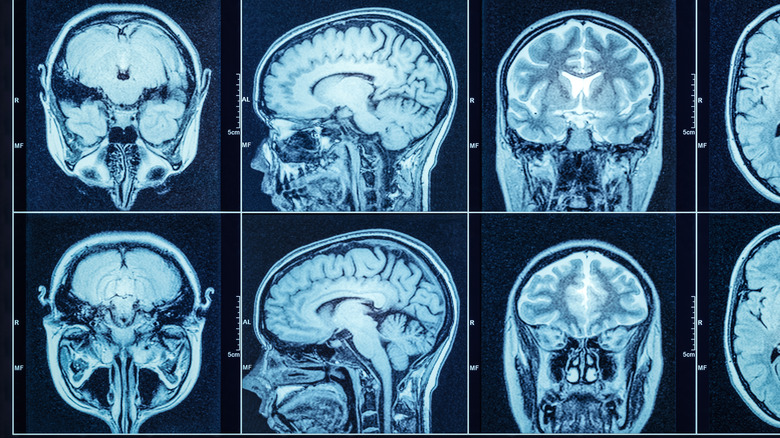What Really Happens To Your Brain When You Form A New Habit
Odds are that you've watched at least one YouTube video on the best way to form new habits. Or if YouTube isn't your thing, you've probably picked up at least one book on kicking bad habits and replacing them with new, healthier behaviors. The one thing all the videos and books have in common is that they reference back to the brain. Their tips usually boil down to tricking our brains into cooperating with the new habit instead of going with what we're used to.
There's science to back them up, of course. Our brains are hard to fool, especially when it comes to habits. This is because repeated actions create a sort of "path of least resistance," some of which are formed before we are really in control of our own preferences and actions. And many of them create a cue-to-reward loop that reinforces the behavior, as the University of Carolina at Chapel Hill explains.
But if you can game the system — for example, by replacing the bad habit with a good one that still provides a similar reward — you can trick your brain into accepting new habits. You'll also set off some interesting processes in your brain: processes that researchers have been studying to learn about the way our brains respond to habitual actions.
Specific neurons fire off
Despite all the research we have conducted on the brain, it is still a vast mystery to us. Unraveling that mystery is exactly what MIT's McGovern Institute for Brain Research was set up to do. Numerous studies and papers have come out of the institute, but one particular 2016 paper in the Journal of Neurophysiology caught the attention of habit specialists almost immediately. It was co-authored by MIT's Ann Graybiel, a brain and cognitive science professor and a McGovern Institute investigator. The study found that a specific pair of neurons fired up every time lab mice began a habitual task. When the mice finished the task — in this case, moving a series of levers — the neurons fired again. Graybiel and her team concluded that these neurons bookended the habits.
Though this research is a few years old, researchers still aren't sure what exactly this means for the future of habit research. They do know, however, that our brains likely react the same, with neurons lighting up to signal the beginning and end of each habit, the flares bookending each set of behaviors. It's an interesting breakthrough that sheds light on just how our brains signal habits and may give future insight into the process of habit formation.


